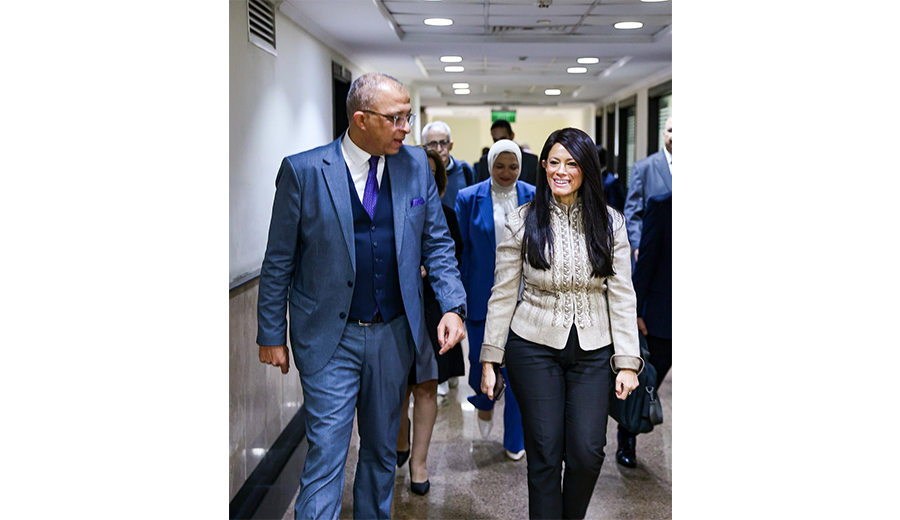NIGSD launches the Forum for Good Governance in the Virtual World “Metaverse” in cooperation with the Thunderbird School of Global Management at Arizona State University

24 February 2022
Egypt’s National Institute of Government and Sustainable Development (NIGSD) - the training arm of the Ministry of Planning and Economic Development - launched the Forum for Good Governance in the Virtual World "Metaverse" in cooperation with the Thunderbird School of Global Management at Arizona State University, in the presence of Dr. Sherifa Sharif, Executive Director of the Institute.
During her opening speech, Dr. Sherifa Sherif, Executive Director of the National Institute for Governance and Sustainable Development said that Egypt and all countries of the world are preparing for the virtual world "Metaverse". Sherif indicated that it is necessary to look at social communication and communication movement in a different concept through the virtual world.Sherif said that the return to the citizen is represented in facilitating his access to various services of a higher quality in light of e-governance that comes within the framework of digital transformation, which works to reduce corruption by separating the service requester from the service provider in the virtual world.Sherif stressed that the conference aims to learn more about the concept of "Metaverse" to explore our readiness for this cultural and physiological transformation and to ensure the assimilation of experiential content and communication in virtual worlds, thus ensuring good governance in this world.Dr. Sharifa Sharif reviewed; the establishment of the institute from 1956 until the change of its specializations and its name to take over the file of governance and sustainable development. Sherif indicated that the institute's vision is consistent with the 2014 Constitution of the Arab Republic of Egypt, the Code of Ethical Conduct 2019-2022, Vision 2030, and Africa's Agenda 2063.
Sherif added that the institute's vision is to review and monitor Egypt's ranking in international indicators to support the development of national strategies and indicators, and to establish partnerships with national, regional, and international think tanks.Sherif explained that the Egyptian Women's Leadership Program, organized by the institute, aims to empower women to achieve better institutional performance and deal with government work challenges. The program succeeded in training about 3,873 women from 12 Egyptian governorates and aims to cover the rest of the governorates during 2022.









